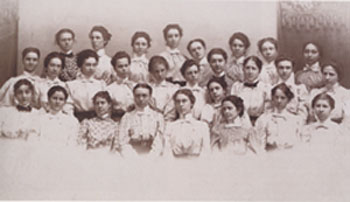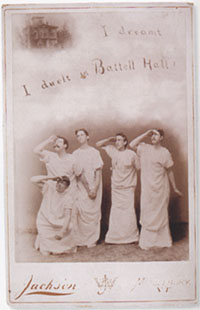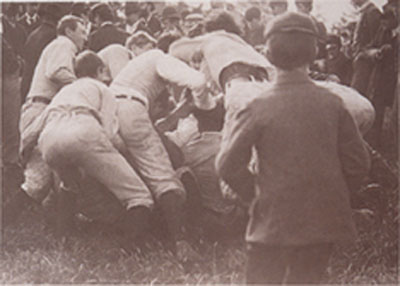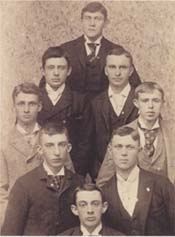



| As Teddy Roosevelt's famous writings on the Rough Riders suggest, the Spanish-American War afforded men like Waterman the opportunity to affirm and develop their masculinity at a time when women were entering formerly all-male domains such as the liberal arts college. Middlebury College ephemera from the 1890s reveals a broader preoccupation with manhood and changing gender roles that is likely related to students' apparent enthusiasm for imperial warfare in 1898. |
|
Alpha Chi Sorority, 1898 -- reflects women's increasing presence on campus since 1883. |
| souvenir card, c. 1898 -- reflects male students' use of humor to address the changing gender balance of the college |  |
 |
The men of Gifford and Hepburn Halls participated in a "cane rush" |
| Larger changes in college life: as this image of Dekes in 1895 suggests, college was increasingly the province of young men and women of relative privilege. Stuggle and strife were less and less a facet of the collegiate man's experience -- thus some were inspired by the possibilities for manly struggle that martial idealism and imperial warfare provided |  |
all images from David Bain, The College on the Hill (1999), 177-191.